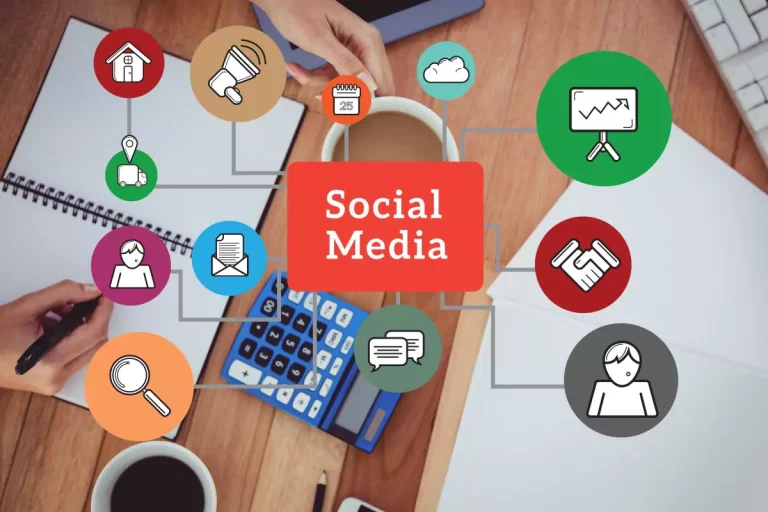Introduction:
Social media has become an integral part of our daily lives, transforming the way we connect, communicate, and consume information. In this era of rapid technological advancement, social media platforms have emerged as powerful tools for individuals and businesses alike. They have revolutionized the way we interact, share ideas, and shape public opinion. However, along with its numerous benefits, social media also poses significant challenges. In this comprehensive analysis, we will delve into the power and pitfalls of social media, exploring its impact on various aspects of society and envisioning its future.
The Power of Social Media:
- Global Connectivity:
- Social media has broken down geographical barriers, connecting people from different corners of the world. Platforms such as Facebook, Instagram, Twitter, and LinkedIn have provided individuals with the ability to build and maintain relationships across borders. This global connectivity has opened doors for cultural exchange, collaboration, and understanding.
- Information and Awareness:
- Social media platforms have transformed into information hubs, delivering news, trends, and insights to millions of users in real-time. They have become catalysts for spreading awareness about social issues, mobilizing communities, and igniting positive change. Movements like #MeToo and #BlackLivesMatter gained momentum through social media, amplifying voices that were previously marginalized.
- Business and Marketing:
- Social media has revolutionized the way businesses market their products and services. Platforms like Instagram and YouTube have given rise to a new generation of influencers and entrepreneurs who leverage their online presence to build brands, reach a wider audience, and generate revenue. Social media marketing strategies have become vital for businesses to stay competitive, engage with their target markets, and build lasting relationships with customers.
The Pitfalls of Social Media:
- Mental Health Impacts:
- Excessive use of social media has been linked to various mental health issues. The constant exposure to carefully curated, idealized versions of others’ lives can create feelings of inadequacy and fuel social comparison. Research has shown that prolonged social media use is associated with increased anxiety, depression, loneliness, and low self-esteem. Additionally, cyberbullying and online harassment are prevalent issues that can have severe emotional consequences.
- Fake News and Misinformation:
- The ease of sharing content on social media without proper verification has led to the rapid spread of fake news and misinformation. Social media platforms have become breeding grounds for the dissemination of false information, which can have serious consequences for society. The impact of fake news on public opinion, political processes, and even public health during events like the COVID-19 pandemic highlights the urgent need for effective fact-checking and content moderation.
- Privacy and Security Concerns:
- Social media platforms collect vast amounts of personal data from users, raising concerns about privacy and security. Instances of data breaches, hacking, and misuse of personal information have become increasingly common. Users’ personal data can be vulnerable to identity theft, targeted advertising, and manipulation. The Cambridge Analytica scandal involving Facebook highlighted the potential misuse of user data, emphasizing the need for stronger data protection measures and transparent data handling practices.
The Future of Social Media:
- Enhanced User Experience:
- Social media platforms are continuously evolving to provide users with more immersive and personalized experiences. Advancements in augmented reality (AR), virtual reality (VR), and artificial intelligence (AI) are likely to shape the future of social media. These technologies will make interactions more engaging, dynamic, and tailored to individual preferences.
- Ethical Considerations:
- As social media continues to evolve, ethical considerations become increasingly important. Platforms must address issues like content moderation, algorithmic biases, and the impact of addictive design patterns to create a healthier online environment. Striking a balance between freedom of expression and the prevention of harm will be a key challenge moving forward.
- Regulation and Policy:
- Governments and regulatory bodies are grappling with the need to effectively regulate social media platforms. Balancing the preservation of freedom of speech with the prevention of abuse, harassment, and the spread of harmful content requires comprehensive and nuanced policies. Collaboration between stakeholders, including governments, tech companies, and civil society, is crucial in developing regulations that protect user rights while ensuring a safe and accountable online space.
Conclusion:
Social media has undeniably transformed the way we communicate, connect, and consume information. Its power to foster global connectivity, disseminate information, and drive positive change is unprecedented. However, the pitfalls of social media, including mental health impacts, fake news, and privacy concerns, cannot be overlooked. As we look to the future, it is essential to address these challenges while embracing advancements that enhance user experiences and promote ethical practices. With responsible usage, effective regulation, and collective efforts, social media can continue to be a powerful force for good in our increasingly interconnected world.




